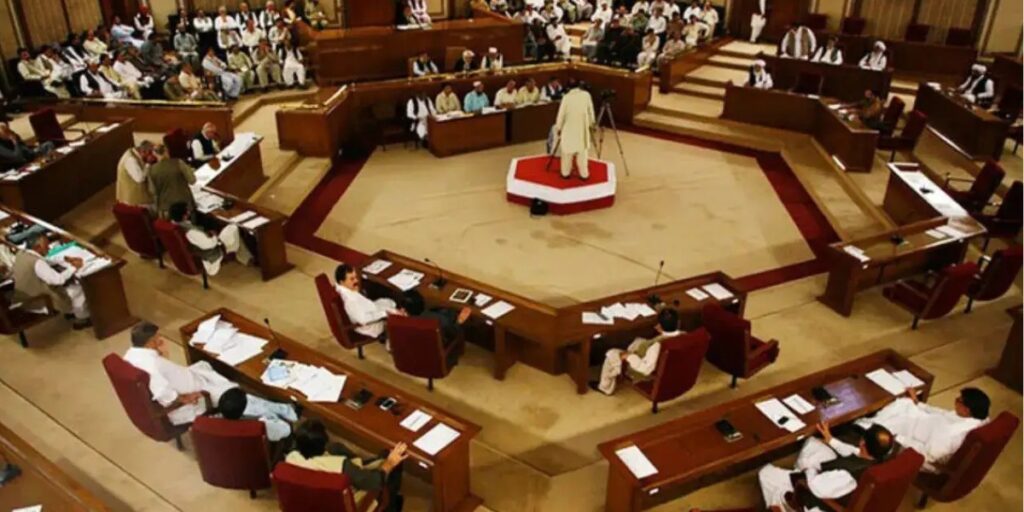QUETTA: The Balochistan Mines and Minerals Act 2025 has become a fresh source of political tension in the province.
Various political parties have raised objections to the legislation and are attempting to organize a movement against it.
Sardar Akhtar Mengal, upon arriving in Quetta, began preparations to challenge the Act. On July 14, a constitutional petition against the Act was submitted in the Balochistan High Court, followed by an All Parties Conference the next day.
National Party, Pashtunkhwa Milli Awami Party (PMAP), Jamiat Ulema-e-Islam (JUI), and Nawabzada Lashkari Raisani had already filed petitions against the Act in court.
Ironically, JUI, National Party, and Awami National Party (ANP) had supported the bill’s passage in the provincial assembly.
These parties turned to the court several months after approving the bill. PMAP does not have representation in the current assembly.
The Balochistan Assembly passed the Mines and Minerals Bill in March 2025 without any notable resistance, and no objections were raised by the now-opposing parties at the time of passage.
In fact, Dr. Abdul Malik Baloch had expressed his support for it.
The current government is a coalition of PPP, PML-N, Balochistan Awami Party, and Jamaat-e-Islami, while the opposition includes JUI, BNP, National Party, ANP, and Haq Do Tehreek, led by Maulana Hidayat ur Rehman.
JUI’s Younus Aziz Zehri serves as the Leader of the Opposition, though the opposition has maintained a friendly stance toward the government.
A controversial moment occurred when JUI MPA Zabid Reki garlanded CM Sarfaraz Bugti after the 2025–26 budget passed.
This led JUI provincial chief Maulana Abdul Wasey to suspend Reki’s party membership and issue a show-cause notice.
JUI also issued notices to other members for supporting the Mines and Minerals Bill, a move criticized by Maulana Fazlur Rehman.
However, no further disciplinary action has been reported.
Ghulam Dastgir Badini of JUI is the chairman of the Standing Committee on Minerals.
When the bill was presented in February, Badini was on leave, and the committee met under Zabid Reki.
Only minor amendments were made before the bill was passed on March 12 without controversy.
CM Bugti correctly pointed out on the assembly floor that opposition parties had fully cooperated in the bill’s passage and thanked them.
Now, JUI members find themselves in a dilemma, as the party leadership from Khyber Pakhtunkhwa and Balochistan has openly opposed the Act and taken legal action.
The case is being pursued by senior lawyer Kamran Murtaza. Most JUI MPAs in Balochistan belong to the business elite.
National Party, which earlier supported the bill, has now reversed its stance, even though their member Rahmat Baloch participated in the committee meeting.
On July 12, former CM Dr. Abdul Malik Baloch challenged the bill in court.
Similarly, Nawabzada Lashkari Raisani and BNP Awami leader Mir Asad Baloch voiced criticism on the assembly floor, condemning the shift from support to opposition.
BNP leader Akhtar Mengal challenged the bill in court on July 14, represented by Sajid Tareen Advocate and Agha Hassan Advocate, both central party figures.
PMAP filed its petition on July 4. However, street-level political activism against the Act remains limited. PMAP is also opposing the controversial allotment of 177,000 acres of juniper forest land in Ziarat, calling it unconstitutional.
A planned protest for July 18 was later postponed with a promise to announce a new date.
The Balochistan High Court, under Chief Justice Rozi Khan and Justice Sardar Ahmed Halimi, heard the petitions on July 14 and scheduled the next hearing for July 21.
The bench instructed that all related petitions be consolidated. This indicates that the opposition parties are relying on the judiciary.
All eyes are now on the court’s upcoming decisions.
ALSO READ: Balochistan Mines and Mineral deptt denies corruption allegations in recruitment
Note: This is the author’s personal viewpoint and does not necessarily reflect the stance of the publication.





